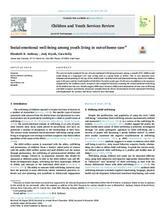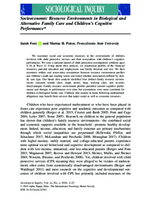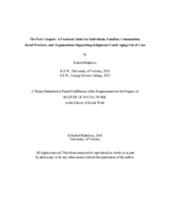Displaying 1021 - 1030 of 2221
This article discusses a key meeting for children in care – the Child in Care Review – and examines the extent to which children and young people are able to participate and exert a level of control over their lives. The research, conducted in England, formed part of a wider exploration of the views and experiences of all those involved in such reviews, namely Independent Reviewing Officers (IROs), social workers, senior managers and – the focus of this article – the young people concerned.
This paper presents a qualitative analysis of front‐line practices regarding emergency removals in Finnish and Irish child protection.
This paper focuses on the longitudinal examination of perceived reactive attachment disorder (RAD) symptoms and indiscriminate, insecure and pseudomature behavior in foster children, many of them having experienced maltreatment and neglect in the family of origin.
The purpose of this study is to explore child welfare workers' perspectives on ethnic matching in child welfare service delivery.
The purpose of this study is to explore child welfare workers' perspectives on ethnic matching in child welfare service delivery.
The current study examined the use of socio-emotional well-being measures among a sample of 57 children and youth living in a congregate care type setting such as a group home or shelter.
This research investigated the association between care placement and the presence of child mental health problems after controlling for children’s pre-care experiences. It also identified factors associated with mental health problems among children in care in the UK.
The authors of this article examined social and economic resources in the environments of children involved with child protective services and their associations with children's cognitive performance.
This research utilized Indigenous methodologies rooted in oral traditions, storytelling practices, and the Medicine Wheel teachings to examine how individuals, families, communities, social workers, and organizations can assist Indigenous youth who are aging-out of foster care and are transitioning into adulthood.
The aim of this study was to examine changes in parental empowerment and child behavioural problems during a period of youth care and how changes are related to the kind of services provided.



